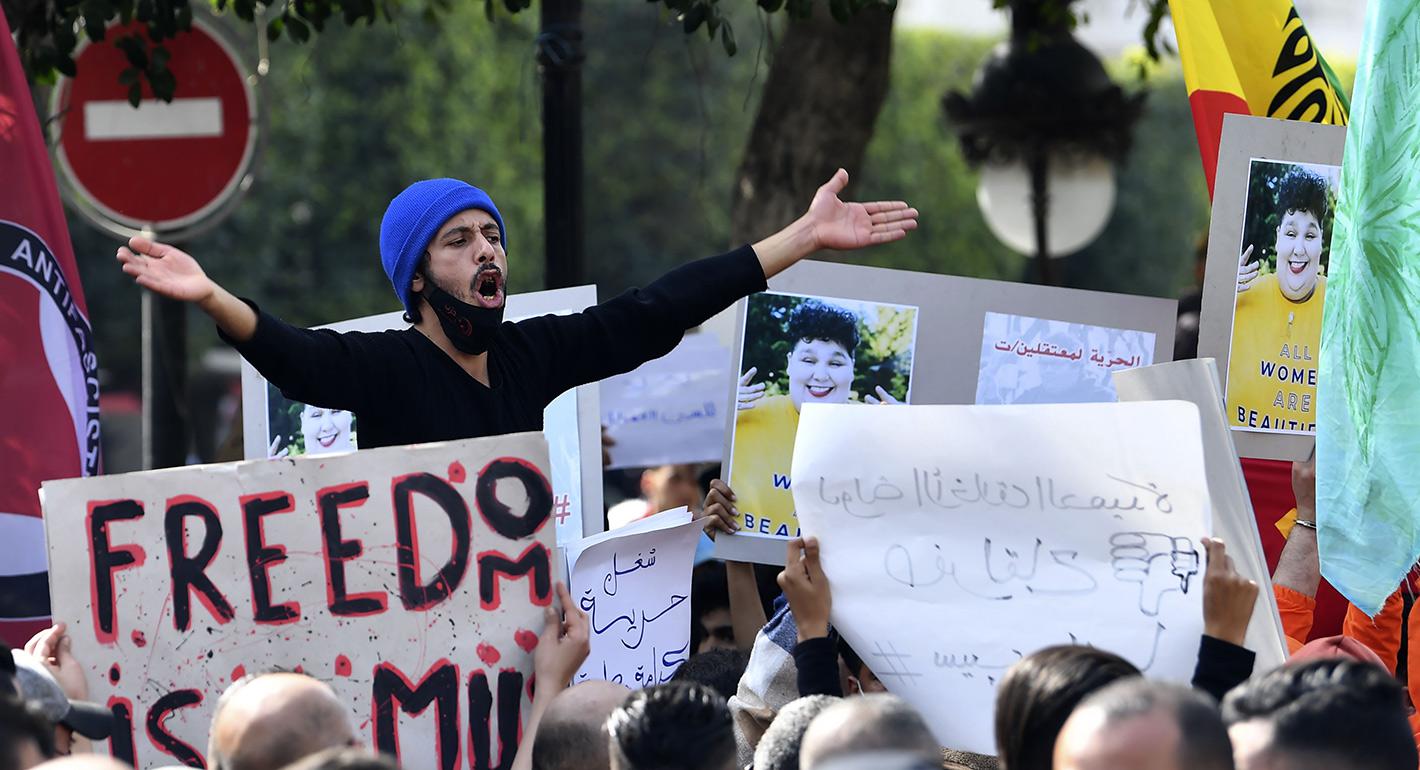Tunisia entered 2021 burdened with many crises. Thousands of people have lost their jobs due to the effects of Covid-19; the unemployment rate rose from 15.3 percent pre-pandemic to 17.4 percent according to the National Institute of Statistics. The health sector is facing difficulties managing the spread of the Covid-19 virus, which has already claimed the lives of 10,000 Tunisians. Furthermore, there is confusion as to how to effectively carry out vaccination campaigns in the country to ensure that all Tunisians can receive a vaccine. In addition to economic issues brought on by the pandemic, Tunisia is also grappling with a political rift among the three top leaders: the speaker of the parliament, the prime minister, and the president. The political turmoil and economic crisis have sparked social unrest across the country, resulting in the arrest of 1,600 civilians and the death of a young man who was hit by a tear gas canister.
According to Ramadan Bin Omar, the official spokesperson of the Tunisian Forum for Economic and Social Rights, the protests have gained momentum this year with about 3,865 cases of civil unrest in the first quarter of this year, 1801 more than the first quarter of 2020.
Ever since 2011, youth in Tunisia have upheld the tradition of protesting in January, which the political authorities have come to expect. However, this year’s protests were more frequent and more intense. A neighborhood in west Tunis held the year’s first protest, which lasted for several days and eventually turned into violent skirmishes in which the police used tear gas against protesters. These instances of violence between police and protesters emerged in other governorates of Tunisia as well including Sousse, Kasserine, Bizerte and Siliana, where the army intervened to protect some facilities.
Protests were met with an unprecedented level of repression from the police forces. More than 1,600 civilians between the ages of 30 to 51 were arrested. The Tunisian League for the Defense of Human Rights documented “gross violations” committed against the detainees, some of whom were children. Documented violations included torture, harassment, beatings, the threat of sexual abuse, and rape. Yousef, an arrested protester interviewed by the author, told of insults, beatings, and torture to which he and his friends were subjected.1 Even more shocking, a 21-year-old man reportedly lost his left testicle as a result of the intense torture he endured in police custody.
The slogan “the people want to overthrow the regime” reemerged during the recent protests. Protestors are demanding the overthrow of the current government, early elections, and respect for individual freedoms. These protests are being led by a generation of protestors who are the children of those involved in the democratic transition of Tunisia. Because they were young children during the Ben Ali era, they do not know the restrictions on freedoms and the repression perpetrated by Ben Ali.
This generation clearly separates themselves from the protesters of the last decade; a youth group, for example, recently launched on social media the hashtag #TheWrongGeneration. Political and civil forces are not able to fit this movement, which rejects traditional groups, into the typical mold of movements in Tunisia.
According to journalist and political analyst Mohamed Al-Youssefi , "The Tunisian state, with its outdated mindset, is unable to understand this new generation and accommodate their demands. Thus far, the crisis in Tunisia has been met with political recklessness, which will lead to rising pressure on the three top leaders.”2 Perhaps the political authority in Tunisia has succeeded temporarily in curbing this new wave of protests by arresting and intimidating dissenters. However, this is a dangerous approach as it increases the likelihood of more social unrest across the country.
Currently, there is no political party that can understand or accommodate this new generation and its demands. The new generation seeks a democratic country based on accountability before reconciliation as well as fighting corruption as an actual practice rather than a slogan. This generation longs for a country that operates under a development strategy that keeps pace with global developments and champions social as well as economic justice. This generation’s rejection of everything political also contributes to the government’s inability to manage their demands, a dilemma that civil society activist Mohamed Barhoumi suggests resolving by adopting a clear strategy to combat political corruption.3 According to Barhoumi, the only way to reset the political atmosphere and restore Tunisian youth’s faith in the political system is for them to see real accountability for the corrupt members of the political class.
Herchi Abdslem is a journalist, professor of finance, and researcher on Tunisia's experience with corruption since independence. Follow him on Twitter: @abdslemher
Notes
1 Interviewed by phone on April 23, 2021
2 Interviewed on April 25. 2021
3 Interviewed on May 5, 2021






